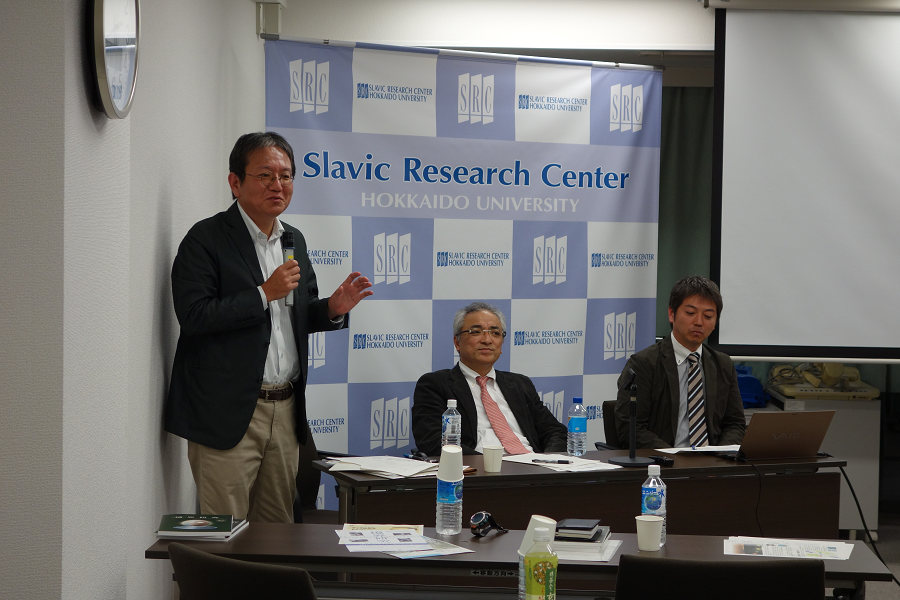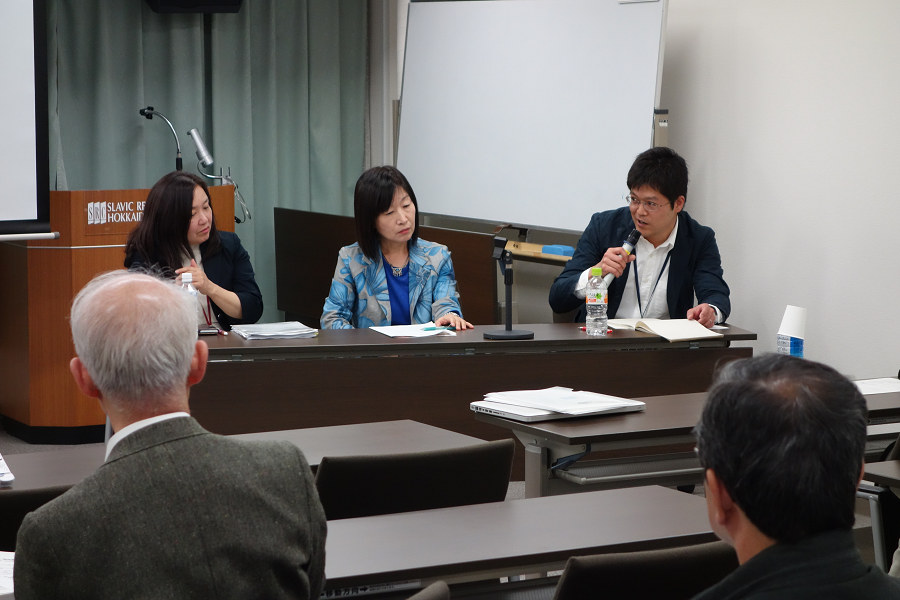
Report on the °»Border Tourism°… (18 Oct)
A seminar titled, °»Border Tourism°… was held at the Slavic Research Centre on Oct. 18th. Professor Iwashita kicked off the seminar with a brief introduction on border and tourism and talked about the possibilities and potentials for Japan°«s local entities that can optimize their position as a °»border region.°…
The first case study presented by Mr. Hanamatsu (GCOE) was on Tsushima, a border city that rests between Korea and Japan. Mr. Hanamatsu is currently working on a joint project with the Korean Studies Center at Kyushu University and the Kyushu Economic Research Center titled, °»Border City: Prospects and Challenges of Kami-Tsushima°…. Currently, there are at least 15000 Korean tourists to Tsushima. In his presentation, he touched upon the limits of the capacity of the receiving side, or Tsushima (especially the infrastructural aspects) and the difficulty in connecting the interests of the local entity and those of the tourists from Korea.
The next speaker, Professor Tamura (Western Kyushu Univ.) presented her work titled, °»Border Tourism: from the Southeast Asian perspective°… and talked about the case studies of the Iskandar Project of Johor Bahru at the Singaporean-Malaysian border and the ethnic minorities of Baan Tong at the Thai-Myanmar border. She argued that the common problem in both cases is that the local culture and community is extremely dependent on the power of capital.
The last speaker, Ms. Hama (MO Tourist Company) presented her work titled, °»Border Tourism in the former Soviet Union: Experiences of one tourist company°… and talked about the difficulties of obtaining visas of former Soviet Union countries and other restrictions that are distinct to this region that make tourism difficult in this region of the world.
The discussants, both experts on tourism, brought up several important questions including the difference between ordinary tourism versus border tourism as well as what is the purpose of border tourism for tourists.
This seminar was the very first attempt to approach this new research field of border tourism. The GCOE program plans to expand this new study and would lke to invite experts from other countries and discipline to share ideas and knowledge on our mission ahead.








